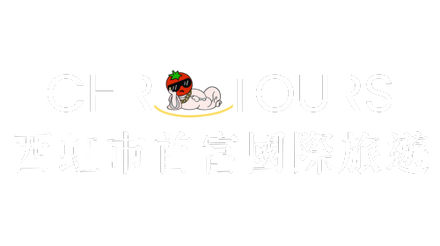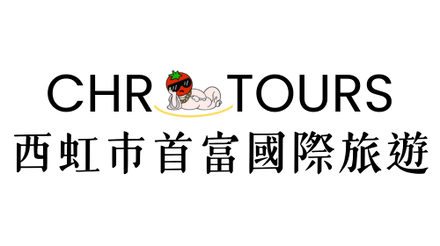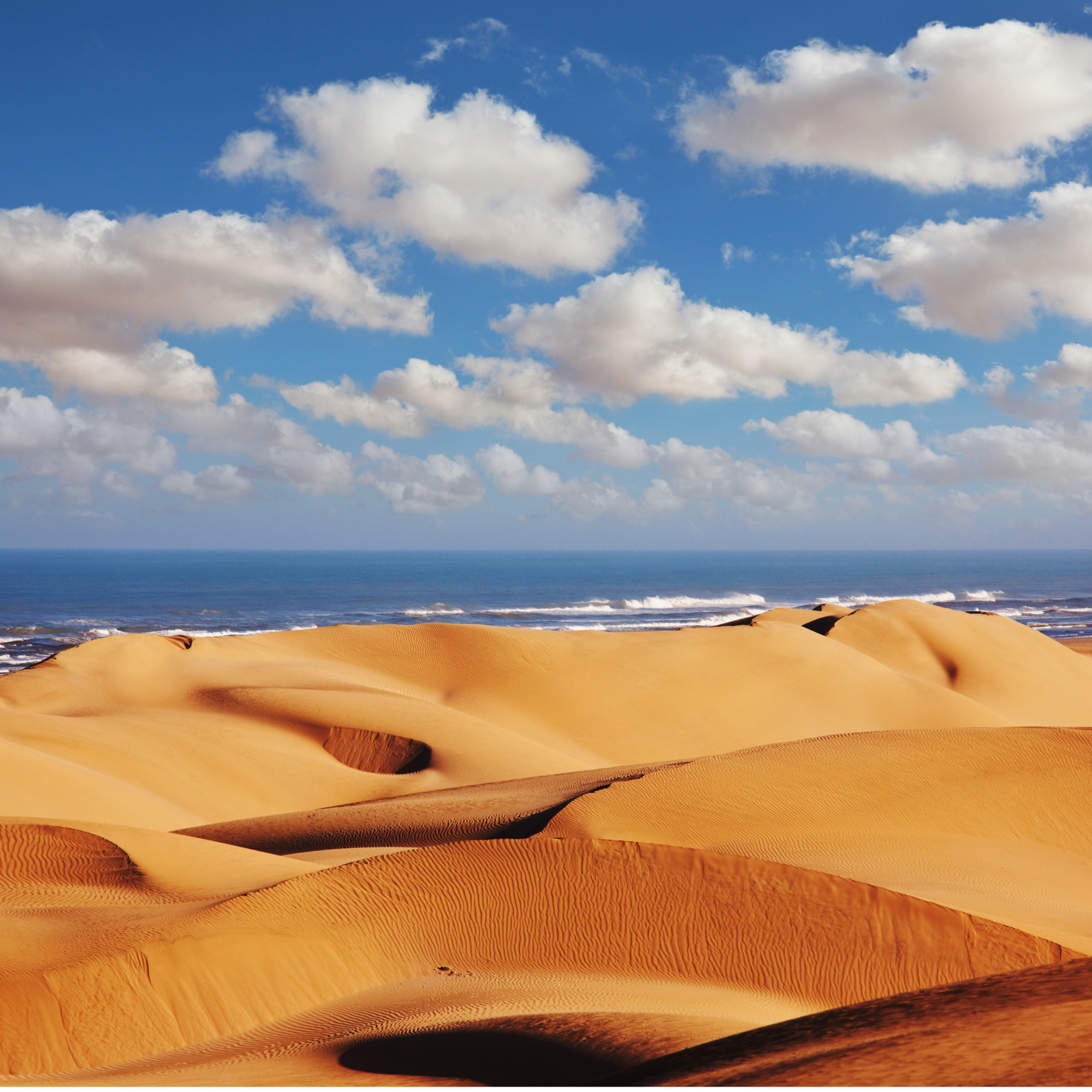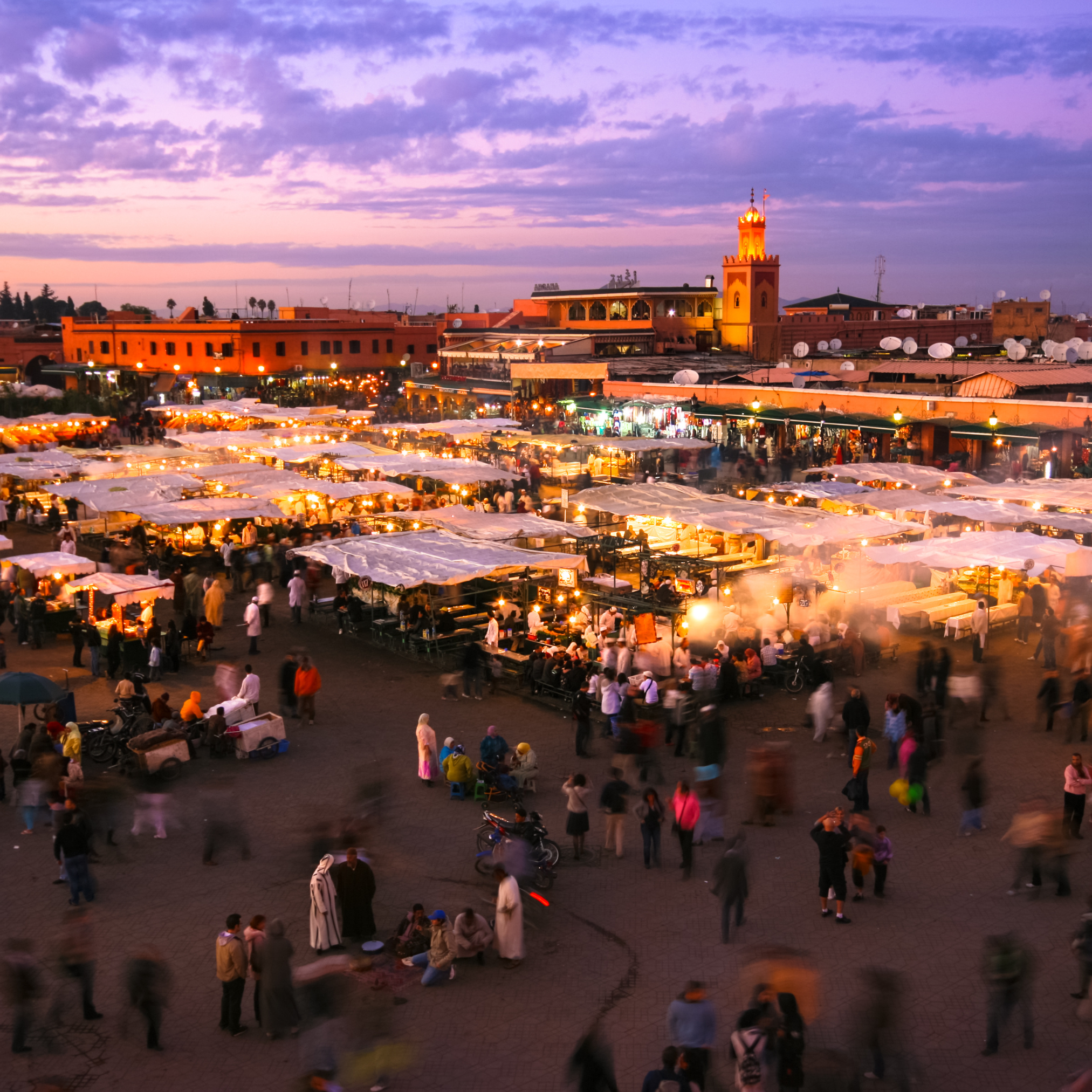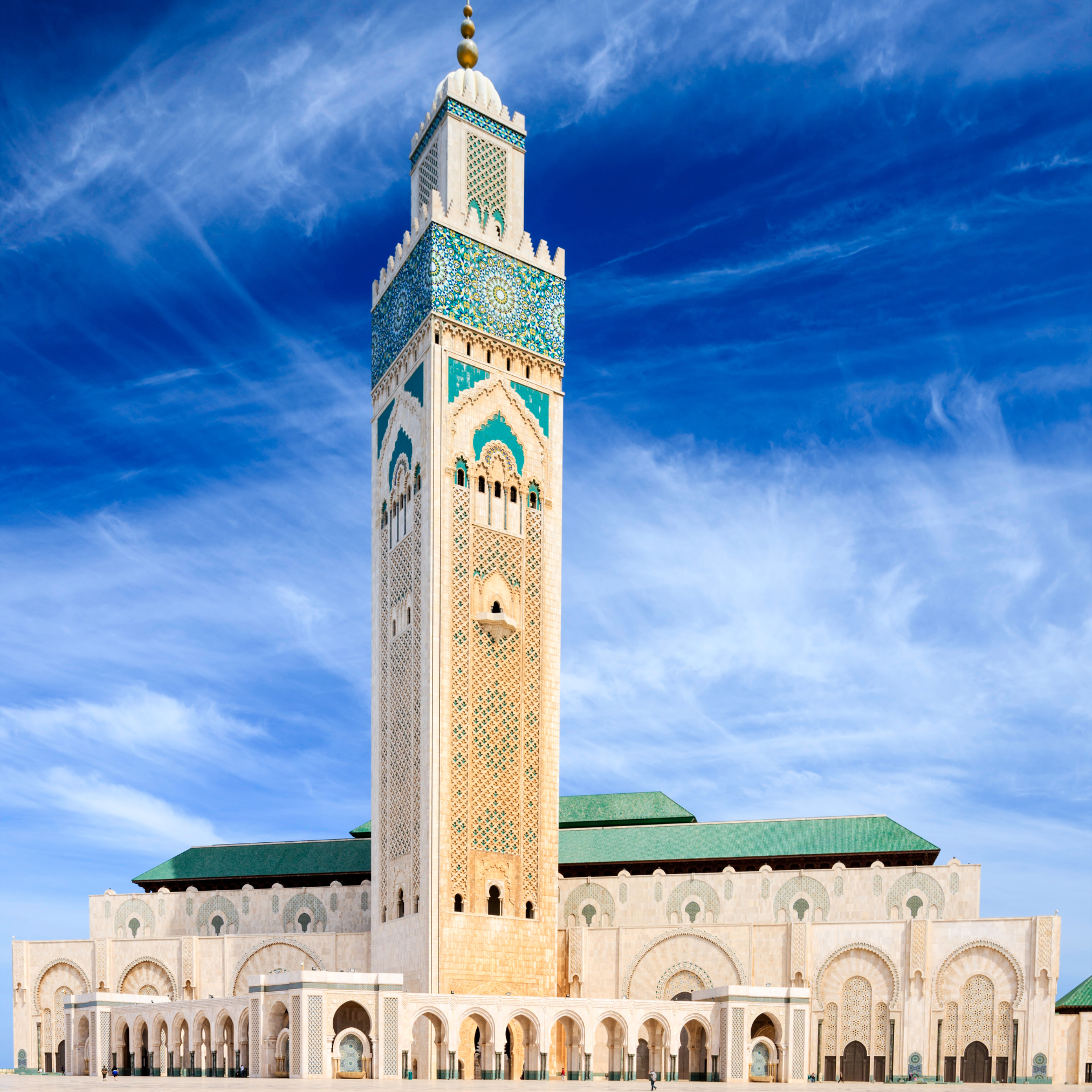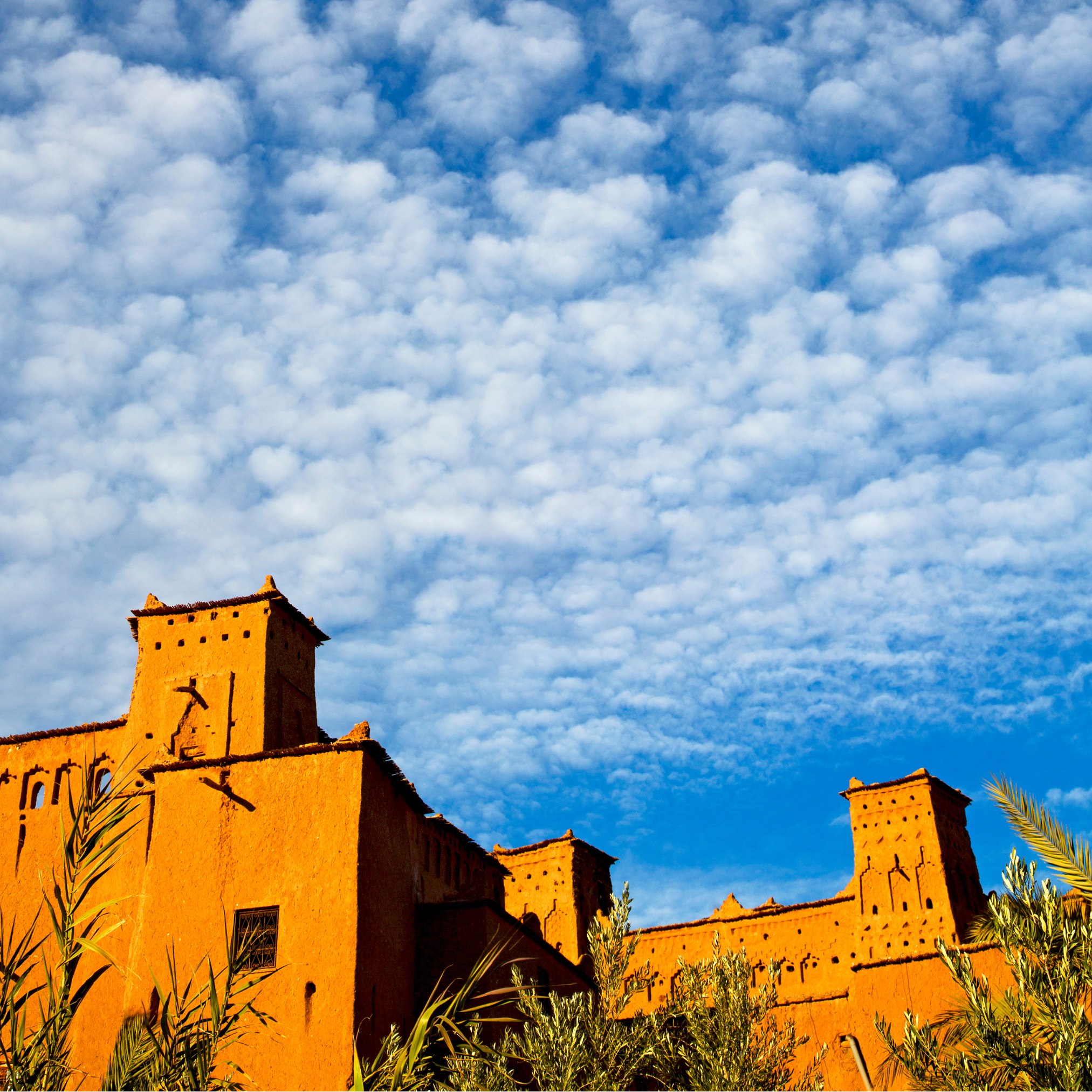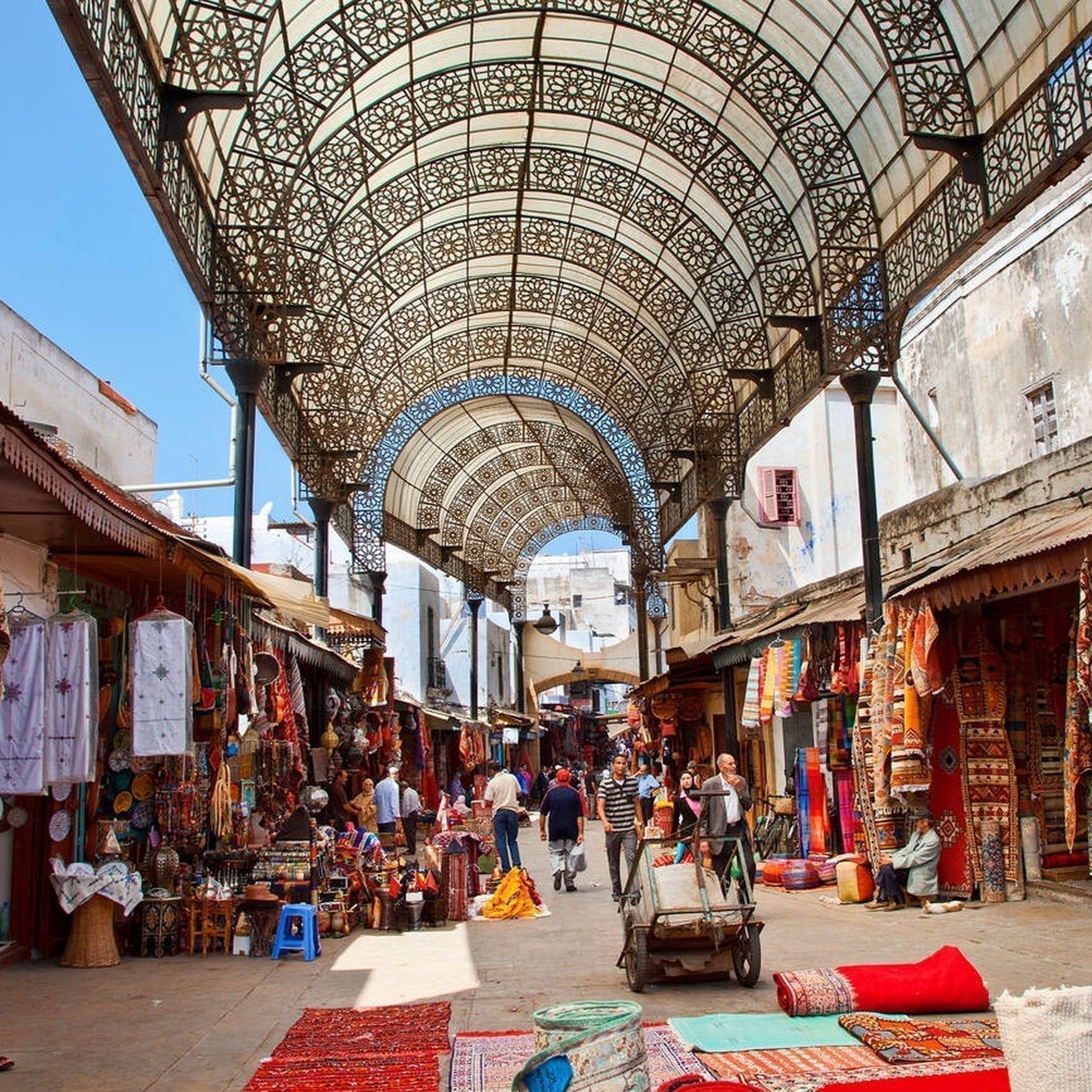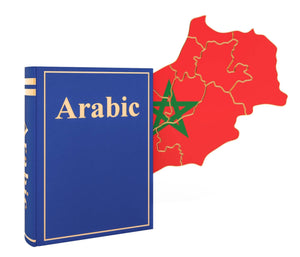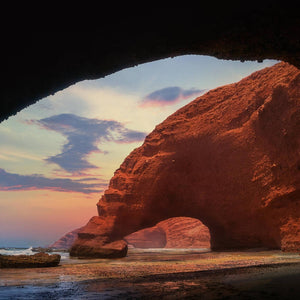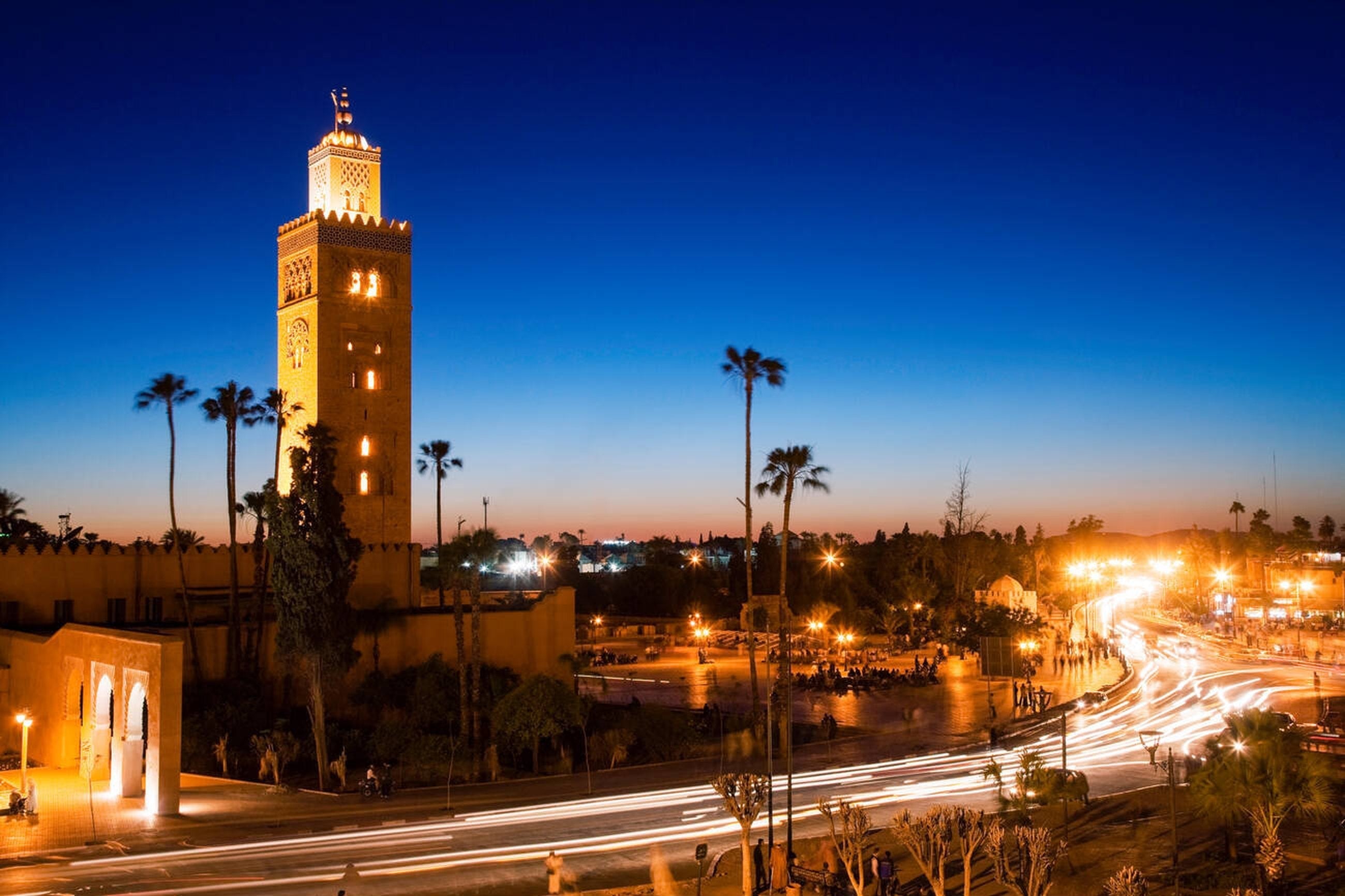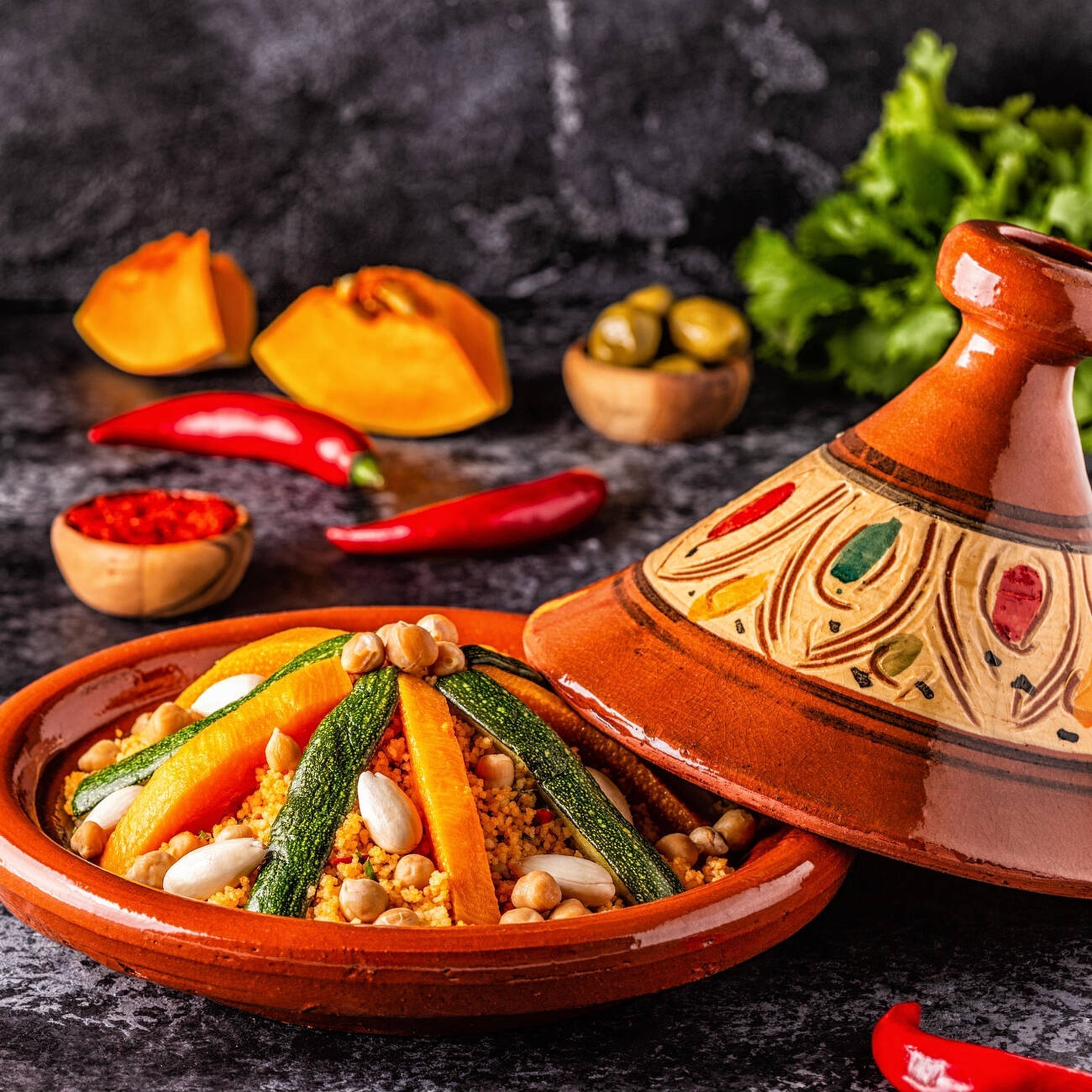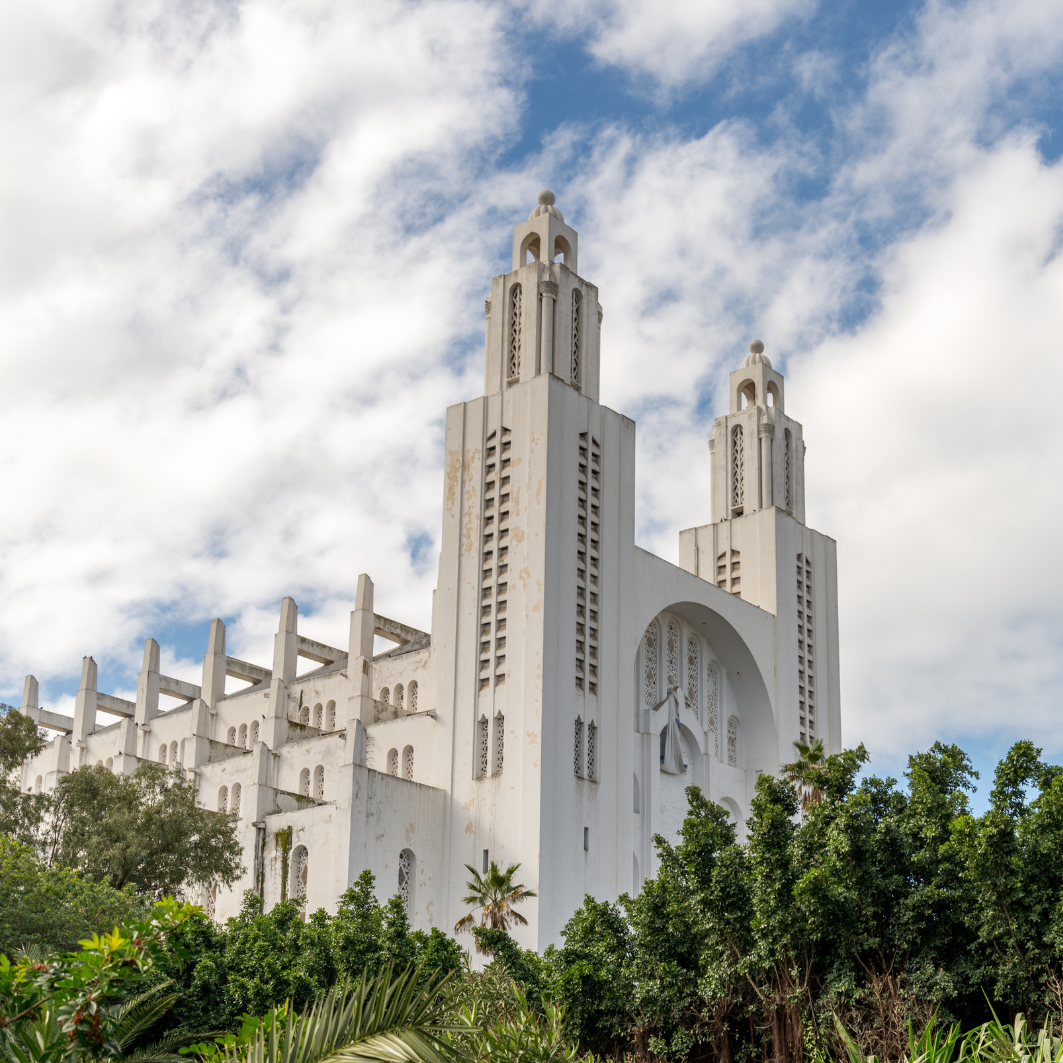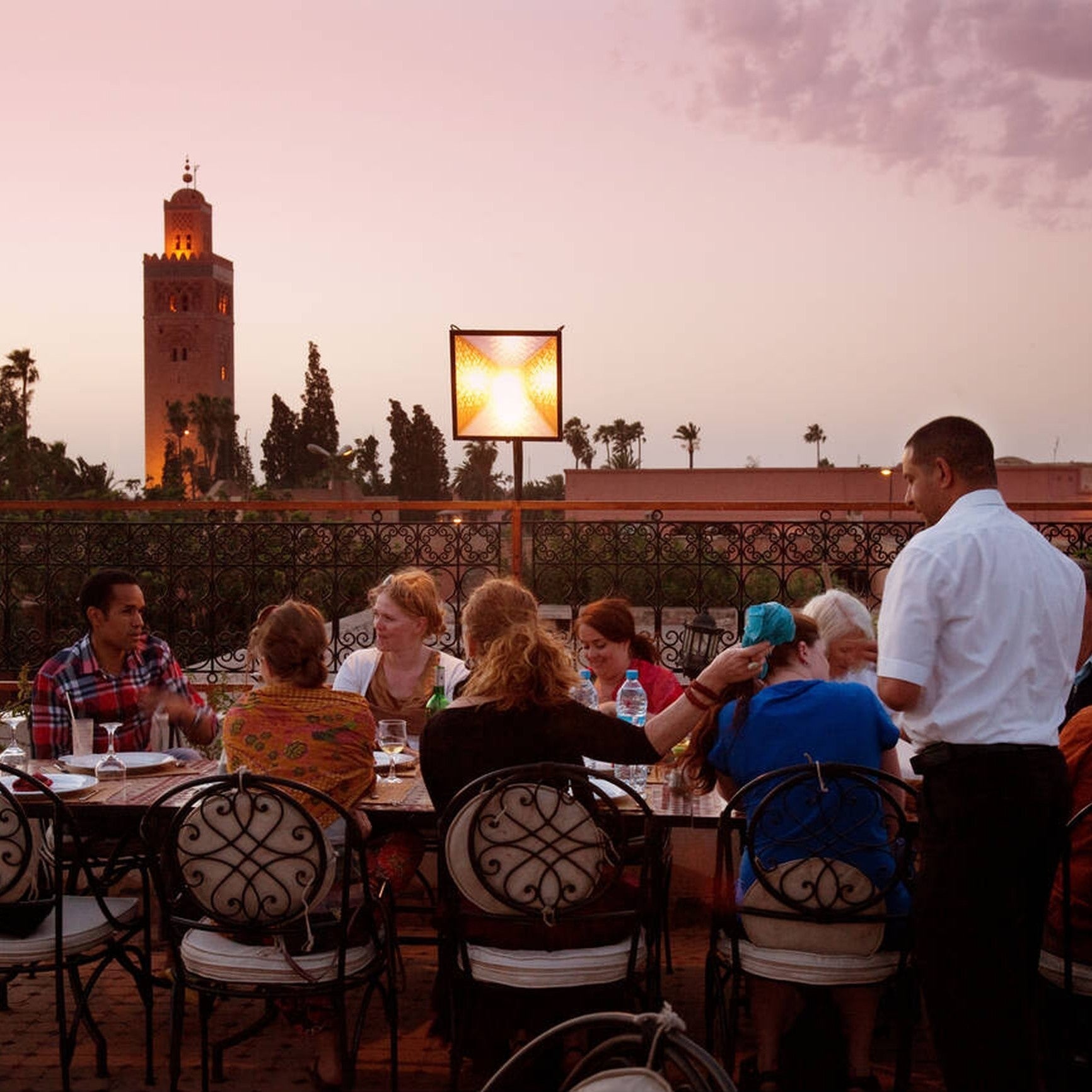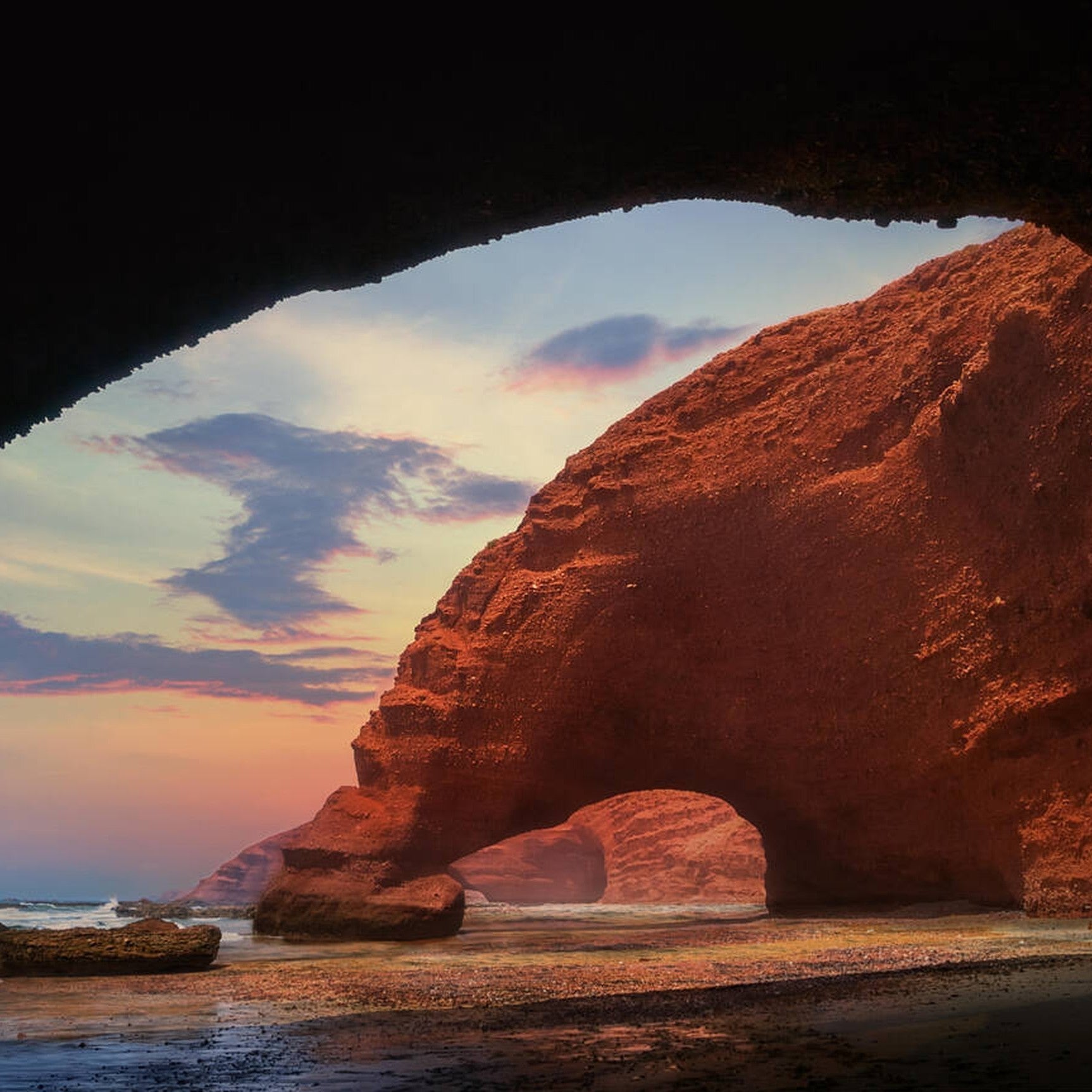What is Morocco Souk?

Souk means market, which is basically a large open-air market where local vendors and artisans sell everything from clothes and shoes to food and furniture, as well as many souvenirs suitable for tourists.
What traditional markets are worth visiting in Morocco?
Souk Semmarine - Marrakech

Located in the center of the old city of Marrakech, close to the famous Jemaa el-Fnaa Square, Souk Semmarine is one of the largest markets in Marrakech. It is a concentration of handicrafts, clothing, jewelry, spices, lamps, etc., covering almost all traditional products in Morocco.
Recommended shopping: metal carved copper lamps, handmade leather products such as leather slippers (Babouche), colorful traditional Moroccan ceramics, Moroccan argan oil, hand-woven Berber carpets, spices such as saffron, herbs such as mint and tea.
Souk Jdid (New Market) - Marrakech
Souk Jdid is near Souk Semmarine. "Jdid" means "new" in Arabic, but this market still retains the style of a traditional Moroccan market, bringing together a large number of exquisite Moroccan handicrafts. It is a popular place for tourists and locals to buy daily necessities, decorations and souvenirs. It is not as busy as Souk Semmarine, so it is suitable for leisurely strolling and exploring.
Recommended shopping: hand-woven baskets, ceramics and mosaic tiles, copper products such as Moroccan lamps and teapots, Berber jewelry, Moroccan spices.
Souk Zrabia (Carpet Market) - Marrakech

Souk Zrabia is close to Souk Semmarine and Souk el Attarine. It is a traditional carpet market with a long history. "Zrabia" means "carpet" in Arabic. Many of the carpets here are hand-woven by craftsmen from local Moroccan tribes. If you want to buy Berber carpets or handmade wool carpets, be sure to add this place to your itinerary.
In addition to traditional Berber-style carpets, you can also find modern Moroccan-style carpets in Souk Zrabia. Some shops still retain the auction style of the old market. The vendors bid in Arabic or French, and the scene is very lively.
Recommended shopping: Berber carpets
Souk el Henna - Fez

Souk El Henna is located in the Fes Medina, close to the famous Medersa el-Attarine and Chouara Tannery. The market's name comes from henna, which Moroccan women often use to draw tattoos or as a natural hair dye. Compared to other bustling markets in the old city of Fez, this market is relatively quiet and is famous for selling natural dyes, herbs, beauty products and pottery. Some stalls and shops also offer henna tattoo services. Henna tattoos are not only an important traditional custom for Moroccan women, but are also often seen at weddings, festivals or special occasions.
Recommended shopping:
Henna Powder: 100% natural, often used for temporary tattoos, hair care or hair dyeing.
Moroccan skin care products (Cosmetics): including Beldi Soap, Rose Water, Argan Oil.
Natural spices and herbs (Herbs & Spices): used in traditional Moroccan cooking or medicinal purposes, such as saffron, licorice, mint, etc.
Ceramics & Pottery: Many hand-painted ceramic bowls and Moroccan-style Tajine stew pots can be found here.
Perfumes & Incense: Pure natural aromas such as Amber and Sandalwood are suitable as gifts.
Souk Nejjarine (Carpenter's Market) - Fez

Souk Nejjarine is located in the core area of the old city of Fez, close to the famous Nejjarine Woodworking Museum and Nejjarine Square. The stalls in the market are filled with hand-carved cedar boxes, Arabic-style door and window decorations, hand-made furniture, etc. Many of the craftsmen here come from families who have been engaged in woodworking for generations. They use traditional techniques to make exquisite wood carvings, furniture and musical instruments. The buildings around Souk Nejjarine are full of medieval Moroccan style, especially the Nejjarine Woodworking Museum, whose building itself is a work of art.
Recommended shopping: hand-carved wooden boxes, traditional Moroccan wooden furniture, wooden chess and game sets, traditional Moroccan musical instruments such as Oud and Kamanja, and Berber-style jewelry boxes.
Shopping tips:
1. Smell the wood: Cedar is the most valuable wood product in Morocco, and you can tell whether it is real cedar by its smell.
2. Be cautious when buying antiques: If you encounter a product that claims to be an "antique", it is recommended to learn more about the market first, as some stores may sell antiques at high prices.
Souk Dhabia (Gold Market) - Fez
Located in the old city of Fez, Souk Dhabia is the most famous gold market in Fez, featuring gold, jewelry and precious metal products. Most of the jewelry here is handmade, combining traditional Moroccan design elements such as geometric shapes, Arabic-style carvings, and exquisite inlay crafts. Jewelers and goldsmiths in the market can provide customized services according to customer needs.
Recommended shopping: gold jewelry, silver jewelry, traditional Moroccan "Khamsa" bracelets, jewelry inlaid crafts.
Shopping tips: When buying gold jewelry, you can ask the merchant to provide a purity certificate or a gold testing tool to ensure that you are buying high-quality gold.
Habbous Market - Casablanca
Habbous Market combines the architectural style of the French colonial period with elements of traditional Moroccan markets, so it gives people a feeling that is full of traditional Moroccan characteristics and modern atmosphere. The architectural style of Habous Market combines traditional Moroccan Murcia (Moorish) architecture, with white and blue building exteriors, arches and gardens, which are very local.

Habous Market brings together various Moroccan handicrafts, especially famous for Moroccan ceramics, especially those colorful plates, cups, bowls, etc., which are very Moroccan souvenirs. You can find many exquisite ceramics, hand-woven carpets, leather products, gold and silver jewelry, etc. The handicrafts here are of high quality, especially traditional pottery and fabrics. Many stalls sell goods that are handmade and full of Moroccan cultural charm.
Rif Mountains Souk - Chefchaouen

Rif Mountains Souk is located around the Rif Mountains not far from Chefchaouen. It mainly sells agricultural products, wool products, natural foods, etc. You can buy fresh agricultural products, traditional fabrics and local handicrafts here.
Shopping recommendations: local honey, agricultural products and vanilla.
Marché Central (Central Market) - Casablanca

Marché Central is located in the commercial district of Casablanca, close to the old port. It is a famous seafood market in Casablanca, selling a variety of fresh seafood, including crabs, lobsters, sardines, seashells, etc. Many businesses offer on-site seafood cooking services, so you can taste the fresh seafood just caught from the sea.
Shopping recommendations: Buy some fresh fish and shellfish, and ask the small restaurants in the market to help process them for a processing fee. Next to the market is a Chinese restaurant called Le Nouveau Dragon, where you can go if you want to try Chinese seafood dishes.
Souk EL Had - Agadir
El Had Market is one of the largest urban markets in Africa, covering an area of more than 13 hectares and gathering nearly 3,000 shops. From a distance, it looks like an ancient castle, with six-meter-high walls towering around the market and 13 gates, making it unique.

El Had literally means "Sunday Market" and its name comes from the traditional market in the old Talborjt neighborhood of Agadir. After the earthquake in 1960, the market was rebuilt in the Amsernat district near the industrial area. Although it has been renovated, it still retains its Amazigh-style architectural features, but the tented stalls of the past have been replaced by neat and orderly shops. The market has a wide range of goods, including handicrafts, fresh produce, clothing, accessories, electronics, household appliances, toys, spices and even books.
Bargaining tips for Morocco markets
Know how to act like an "expert"
When you first arrive in Morocco, you may be very excited and happily say "Yes" every time you answer "First time in Morocco?". But if you respond like this in the old city market, you may become a "lamb to be slaughtered" in the eyes of the vendors. Even if you look like a tourist, you should act familiar and pretend to be an expert, which can reduce the probability of being cheated and reduce the risk of being overpriced.
30% off and 50% off
In Marrakech, the prices offered by vendors are generally considered relatively cheap by European and American tourists, but in fact they are often extremely profitable. Generally speaking, you can start bargaining from 70% off, and how much you can bargain depends on your skills. In the Fez market, the asking price is usually slightly lower than that in Marrakech, so it is appropriate to start bargaining from 50% off.
Bargain one by one
When bargaining, we are always used to picking all the goods at once and asking the boss to give a unified discount, which usually allows us to reach a more reasonable price. But in Moroccan markets, vendors usually suggest that you pick more items to bargain with, however, it is more difficult to bargain with multiple items at once. Because they usually start with a high price, beginners may lose their way because the prices are piled up quickly. It is best to bargain for each item one by one until you are satisfied.
Everything is a rhetoric
A common trick used by Moroccan vendors is to show you two similar items, then tell you that one is of poor quality and the other is of better quality, and therefore offer a higher price. Be sure to pay attention to this "rhetoric" technique when buying things!
Shop around
There are many kinds of goods in the market, and they seem to be similar on the surface, but the texture and craftsmanship of the goods in each stall vary greatly. For example, Moroccan slippers, some stalls sell sponge soles and poor workmanship; while some stalls are hand-sewn, with soft leather and fine workmanship. It is definitely worth spending some time shopping around and picking out the best quality goods.
Pay attention to the location of the goods
The location of the market stalls affects pricing. Stalls in prime locations usually have higher rents, so vendors will raise their prices accordingly. But this doesn't mean you should avoid stalls in prime locations, sometimes the goods in these places are more guaranteed.
Turning away is also a strategy
If you can't get the price down, one of the most effective ways is to turn away. There are usually two possible results at this time: one is that the vendor will call you back and make a deal at a price you are satisfied with; the other is that the vendor thinks that the deal cannot be made, then you know the lowest price of this product, and you can try other stalls later.
There is also a golden time to visit the market
The golden time for the market is in the morning, because the vendors have just opened the market, the prices are more affordable, and there are fewer people, so it is not easy to put pressure on you. Compared with the sense of urgency in the afternoon, you can bargain more calmly in the morning.
Conclusion
Morocco's traditional markets Souks are full of exotic atmosphere. If you plan to go to Morocco, don't forget to leave some time for them and have a good look. The purpose of visiting the market is actually to enjoy the process. As long as the price is not too outrageous, the vendors also want to make money. If both parties reach a reasonable price and buy happily, everyone will be satisfied. Of course, mastering some bargaining skills and shopping around can make your shopping trip more enjoyable.
If you want to know more about Morocco, please refer to our blog: Morocco travel guides.
Planning to travel to Morocco? You can refer to these itineraries for inspirations:
3-Day Sahara Adventure: Marrakech to Fes via Ait Benhaddou & Merzouga Desert
5-Day Journey through Northern Morocco: A Blend of History and Culture
7-Day Morocco Adventure: A Custom Journey from Marrakech
13-Day Moroccan Odyssey: A Custom Journey from Casablanca
Want to customize your Morocco travel itinerary? Feel free to contact us for personalized tour experiences:
Email: [email protected]
WhatsApp: +212713053383
WeChat: MLG0714624860
